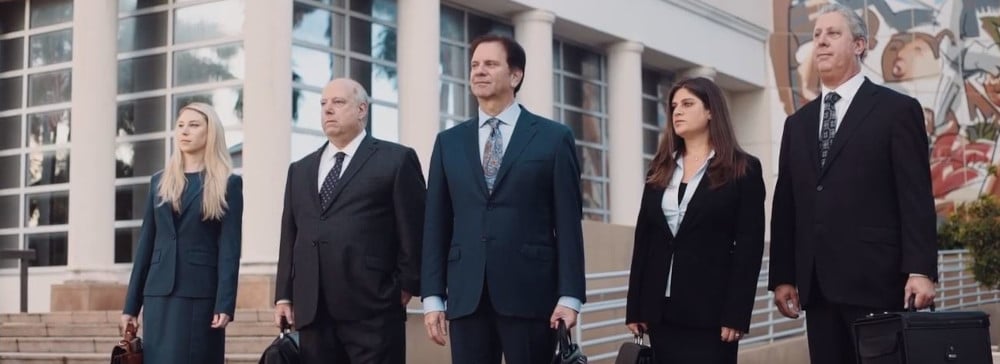Table of Contents
After an unexpected death due to the negligence or recklessness of another, loved ones are often faced with difficult questions about a potential wrongful death case while wrapping up the affairs of their loved one, all during the mourning process. One of the tasks for the grieving family and personal representatives will be to determine whether a wrongful death claim should be filed.
These cases require an expert gathering of evidence and complicated, nuanced arguments to prove both fault and compensation. Because of the likelihood of high damages that a wrongful death often involves, insurance companies and opposing parties will often invest a significant amount in their effort to minimize, delay, or deny paying a settlement or judgment.
If you have lost a loved one in Florida, speak with an experienced Stuart wrongful death attorney at Kogan & DiSalvo. We have worked with many families to hold responsible parties accountable and recover compensation.
After years of handling these tragic cases, we know only too well the challenges you face in taking legal action at a particularly sensitive time. We can guide your loved one’s personal representative in filing a wrongful death claim, assist in complicated tasks like gathering and presenting evidence, and consult on whether a settlement should be rejected in favor of litigation. Call us at your convenience for a free consultation.

In Florida, a personal representative for the decedent is the only party that can file a wrongful death lawsuit. A personal representative can be any individual who is at least 18 years old and is a resident of Florida at the time of the decedent’s death, a bank, or a trust company with the authority to perform the duties of a personal representative. The personal representative is approved by the court.
A personal representative may be designated by the decedent before their death or may be appointed by a court after.
The personal representative has a duty to collect the deceased’s assets, pay their liabilities, and distribute the estate to beneficiaries – they essentially perform a similar role as an executor of an estate in other jurisdictions, and may need to make several important decisions upon the decedent’s behalf.
Because personal representatives are not necessarily attorneys with knowledge of wrongful death cases, they will typically consult with an attorney regarding the possibility of filing a wrongful death claim on behalf of the decedent’s family. Although the personal representative has standing to file the claim, and the personal representative is often a member of the decedent’s family that may be a beneficiary of the lawsuit or settlement, this claim is filed on behalf of the surviving family members.
Wrongful death claims are filed in response to a death caused by someone else’s negligence, wrongful act, or violation of a contract or warranty.
Some of the most common causes of wrongful death claims include:
The statute of limitations in Florida determines how much time you have to file a civil claim. In wrongful death cases, the clock starts running at the decedent’s death, and a claim must be filed within two years.
While two years may seem like quite a long time, keep in mind that wrongful death cases will require a filing from the decedent’s personal representative, gathering evidence, and other time-consuming actions, while unexpected delays are always possible. For these reasons, we suggest that personal representatives consult with an attorney as soon as they consider a wrongful death claim.
Three types of damages can be claimed in a wrongful death case: economic, non-economic, and punitive.
Economic damages are typically the most straightforward. These are the damages intended to cover financial losses, such as money that was spent by an estate for funeral arrangements, which would be provable by a receipt from the funeral home.
Economic damages can include:
Non-economic damages have a bit more room for argument. These damages compensate for intangible losses, such as losses based upon a relationship to the decedent. Non-economic damages in a wrongful death case can include:
Because of these damages’ intangible and highly subjective nature, they often require nuanced arguments and sophisticated evidence like statements and testimony from expert witnesses or peer-reviewed scientific articles.
Punitive damages, also known as exemplary damages, are awarded by a court to punish a defendant for particularly egregious acts and provide an example to deter potential future defendants from similar actions. Under Florida’s law, a plaintiff must prove by “clear and convincing” evidence that a defendant acted intentionally or with gross negligence to qualify for punitive damages.
“Clear and convincing” is higher than the “preponderance of the evidence” standard, which essentially means “more likely than not,” which is more common for damages in cases like negligence and wrongful death. Although rare, punitive damages are typically significant, and are often the highest award of any type of damages.
Florida is a modified comparative fault jurisdiction. This means that any award of damages will be reduced by the amount of fault that a plaintiff bears for their injury as long as they are 50% or less at fault for their injury. For example, Driver A runs a red light and collides with Driver B, who was speeding. If the court finds Driver A 40% at fault for the accident, they could still recover 60% of the damages from their injury. If the court finds Driver A 51% or more at fault, they are barred from recovery entirely.
Although damages in a wrongful death case can be significant, much of the losses will include claims that the decedent would have had themselves, i.e., pain and suffering between the accident and death of the decedent. The cause of action underlying those damages would survive the decedent, and are known as survivorship claims that will place a family member into the legal position of the decedent to assert their legal rights.

Wrongful death cases typically involve high damages that require years of legal and industry knowledge to accurately estimate potential compensation. Due to the high payouts, insurance companies and opposing parties will often be quick to offer a settlement that will not adequately cover a family’s losses, or spend far more resources to minimize, deny, or delay a settlement or judgment than in other cases involving smaller sums.
The attorneys at Kogan & DiSalvo can provide an estimate, analyze a case, and offer guidance and representation every step of the way. Our lawyers can negotiate with insurance companies, file your claim, and provide essential legal and industry context to inform you and your family on how best to move forward at this difficult time. Call our law offices to schedule a free case review where we will outline your legal options and give you the information you need to decide on next steps.
If you are injured and unable to come to us,
our attorney will come to you - there is no charge for us to do so.